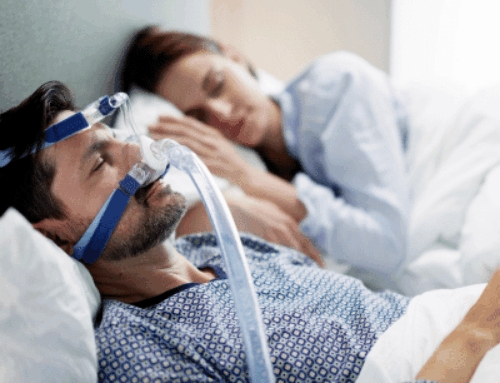 Do you wake up tired even after a full night’s sleep? Snoring may not just disturb your partner — it could signal a more serious condition. Understanding the difference between simple snoring and sleep apnea is important for protecting your long-term health. By knowing what to look for, you can decide when it is time to seek professional help.
Do you wake up tired even after a full night’s sleep? Snoring may not just disturb your partner — it could signal a more serious condition. Understanding the difference between simple snoring and sleep apnea is important for protecting your long-term health. By knowing what to look for, you can decide when it is time to seek professional help.
At Virginia Ear Nose and Throat, our physicians combine decades of experience with advanced diagnostic tools to identify and treat sleep-related concerns. With a team that includes board-certified ENT doctors, audiologists, and physical therapists, patients benefit from expert care tailored to their unique needs.
The Difference Between Snoring and Sleep Apnea
Snoring occurs when airflow is partially blocked, causing throat tissues to vibrate. It is often harmless but can be disruptive. Sleep apnea, on the other hand, involves repeated pauses in breathing during sleep, depriving the body of oxygen. While snoring is a nuisance, sleep apnea can pose serious health risks like heart disease and stroke.
When Snoring Becomes a Concern
Snoring may be linked to underlying health or anatomical issues. It becomes concerning when accompanied by other symptoms, which may include:
- Loud, chronic snoring: Nightly, disruptive snoring that persists for months.
- Pauses in breathing: Observed by a partner during sleep.
- Morning headaches: Caused by reduced oxygen levels during the night.
- Daytime sleepiness: Feeling excessively tired or drowsy.
If you recognize these signs, it may be time to see a specialist. Snoring alone may not be dangerous, but these symptoms often point toward sleep apnea.
How Sleep Apnea Is Diagnosed
A sleep study is the most reliable method for confirming sleep apnea. At Virginia ENT, we utilize testing measures to monitor breathing patterns, oxygen levels, and heart rate during sleep. Results help determine if pauses in breathing are occurring and how severe the condition may be. This diagnosis is crucial for developing the appropriate treatment plan.
Treatment Options for Sleep Disorders
Treatments vary depending on the cause and severity of the condition. Your ENT provider may recommend therapies such as:
- CPAP therapy: Continuous positive airway pressure delivered through a mask at night.
- Lifestyle adjustments: Weight management and limiting alcohol before bedtime.
- Office procedures: Minimally invasive treatments for airway obstruction.
- Surgical solutions: Options such as tonsillectomy or soft palate trimming.
Every treatment plan is designed to improve sleep quality while reducing health risks. A personalized approach ensures that patients receive care suited to their condition and lifestyle.
Sleep Better With Virginia ENT
Better sleep means better health. If you suspect sleep apnea or are tired of disruptive snoring, the specialists at Virginia Ear Nose and Throat can help. With locations in the West End, Colonial Heights, Hanover, Midlothian, and our dedicated Surgery Center in Richmond, our team provides expert ENT care to families throughout the community. Call 804-484-3700 today to schedule an appointment and take the first step toward healthier sleep.


